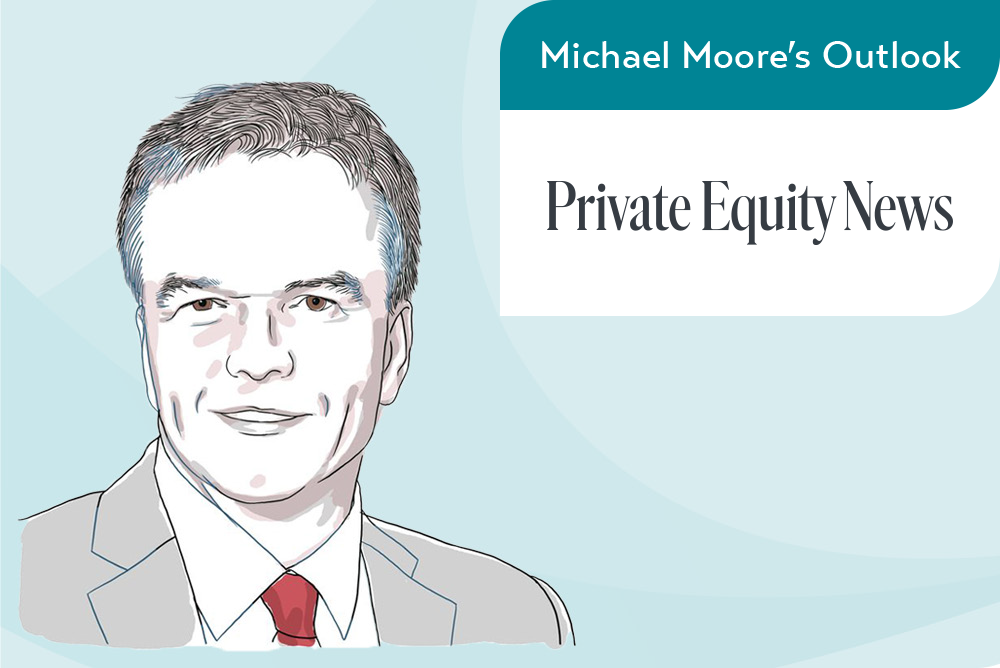Michael Moore’s Outlook on what the Silicon Valley Bank collapse meant for the industry

A quiet Friday late in winter. Spring in the air perhaps. But for the historically-minded, or superstitious, it’s the weekend before the Ides of March, notorious as the date of Caesar’s assassination in ancient Rome. More prosaically, it was the time in the month when debts had to be settled. That’s the bit we should have been paying attention to.
And so it was that Silicon Valley Bank collapsed. The rumblings on the other side of the Atlantic were there, but their significance missed. Until the end, which was swift. Matched in alacrity only by the response.
The UK government moved urgently to macro-stability mode. The correct response, no question. SVB’s local operations were put into the custody of the Bank of England and messages of calm were pumped out into the ether. Within a week, over in Switzerland Credit Suisse had been folded into UBS rather than just being allowed to fold. So nobody can argue this was not the right priority.
But as the UK private capital industry gathered in haste early on Saturday 11th March, there was real concern that the ‘move on by, nothing to see hear’ tone might make policymakers miss the significance of SVB’s collapse for UK tech and its backers.
And while venture-backed businesses were in the spotlight, it rapidly became clear that private equity-owned firms were not far from centre stage. Likewise, if there were any secondary effects amongst specialist deposit holders and lenders, the impact would be catastrophic for many.
A lot happened over the weekend. Suffice to say by tea time on the Saturday, when UK ministers hosted a Zoom call with tech leaders and our industry, we were on our third or fourth data refresh of the day. These analyses showed the government that while it might not (yet) be a ‘Lehman moment’ for the banking sector, by contrast it could well be for the UK tech sector.
The ‘why?’ is instructive. SVB’s team knew tech and its backers very well. The range of services was tailored to the sector and the bank appeared to have secured a disproportionate share of lending and related banking services. Directly linked to that, it held a large concentration of deposits. Our snapshot suggested that for a thousand portfolio companies backed by the industry, a third were banking with Silicon Valley and 40% of those had immediate issues. In the cash-burn world of start ups, it is axiomatic that immediate, reliable access to funds on deposit or agreed lending facilities is mission critical. SVB’s collapse drove home that reality.
Through the Sunday of the crisis weekend it was ‘rinse and repeat’ for data gathering, analysis, submission and engagement with the UK Treasury and Downing Street. Speculation mounted on different rescue scenarios, but the possibility of no rescue remained real. The government was clear, however, that it understood the stakes – the demise of ambitions to become a scientific superpower would be the least of it in the short term, since thousands of tech jobs were on the brink.
And then it was done. The 7am announcement on Monday 13th March of the transfer of SVB in the UK to HSBC brought calm and order. Exactly what was needed. The outcome was a monumental achievement by the UK government, the Bank of England and the regulators and a real statement of intent by a globally significant UK-based bank.
After the rollercoaster, a chance for the dizziness to pass and to reflect on what we have learned. Number one – UK tech businesses have critical mass in the economy and their VC/PE backers are in the mainstream. Without that, there would have been no lost weekend working out a rescue.
Number two – as the Credit Suisse/UBS merger painfully underlined, alongside multiple capital injections to the US regional banking sector, the wider financial system had (still has?) issues to deal with. With ongoing economic uncertainty, including an unexpected uptick in UK inflation, wariness will prevail for some time.
And number three? The UK still has work to do to develop the ecosystem to support VC, growth equity and PE backed businesses. Over concentration on one institution was, to put it mildly, sub optimal. Private capital firms have moved swiftly to correct that in recent days and the market for services to the tech companies will change, we can be confident. So, some gain to come after all the pain.
Shakespeare popularised the notion of bad things happening on the Ides of March in his eponymous play about Julius Caesar. We can breathe a sigh of relief that UK tech does not now have its own reason to shudder at their mention.
Michael Moore
Chief Executive, BVCA
This article was originally published on 18 April 2023 on the Private Equity News website here.